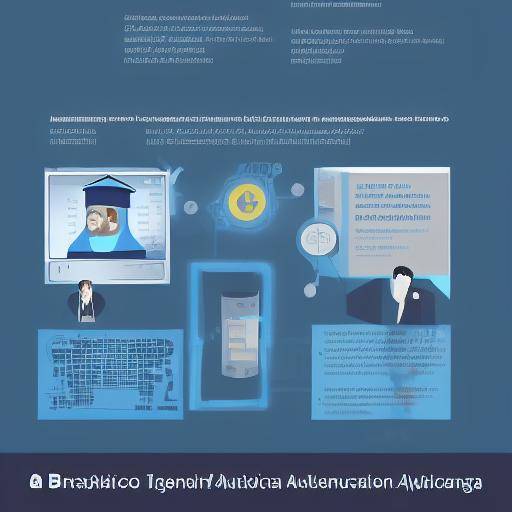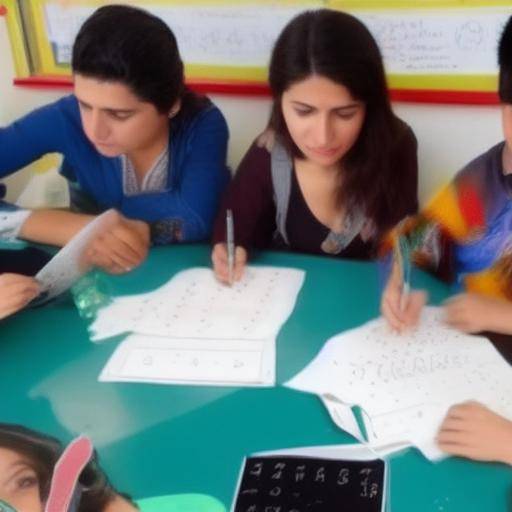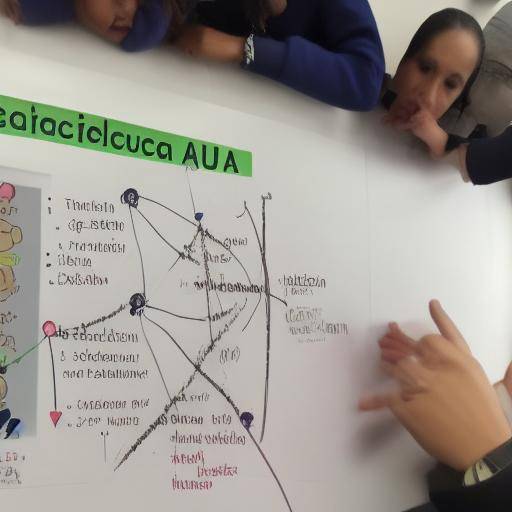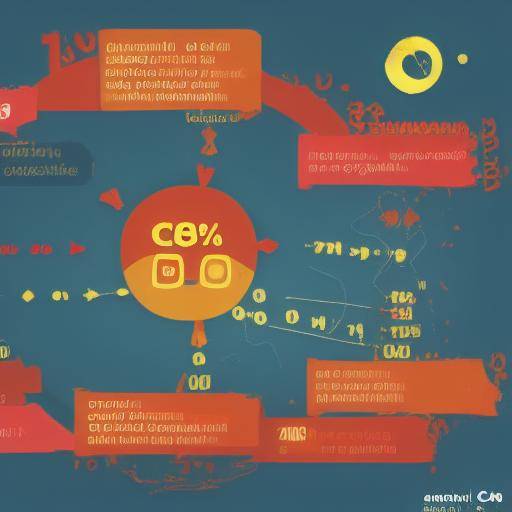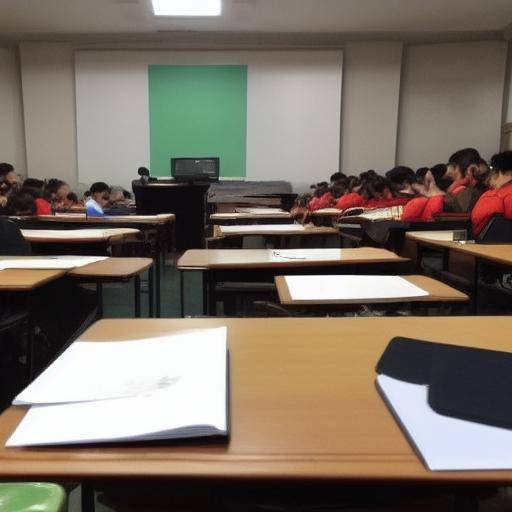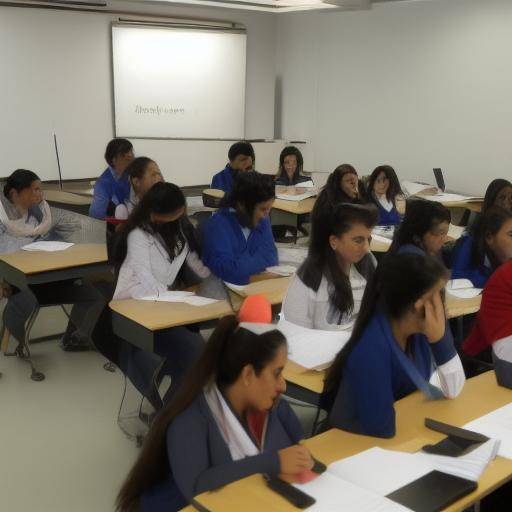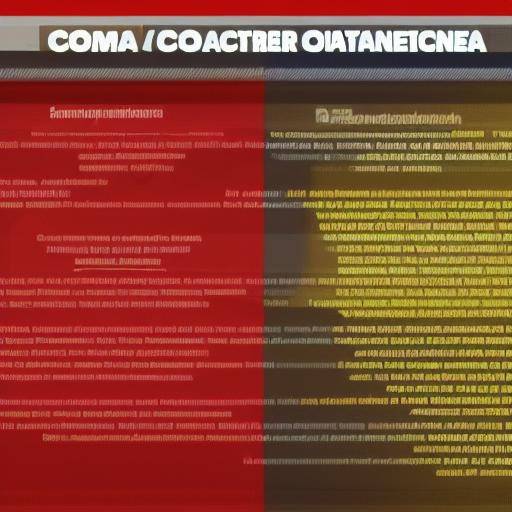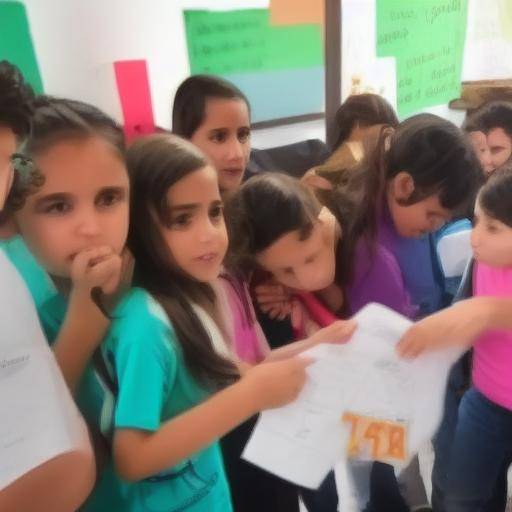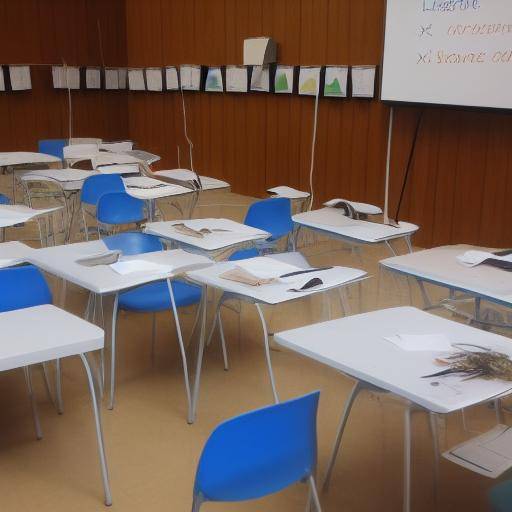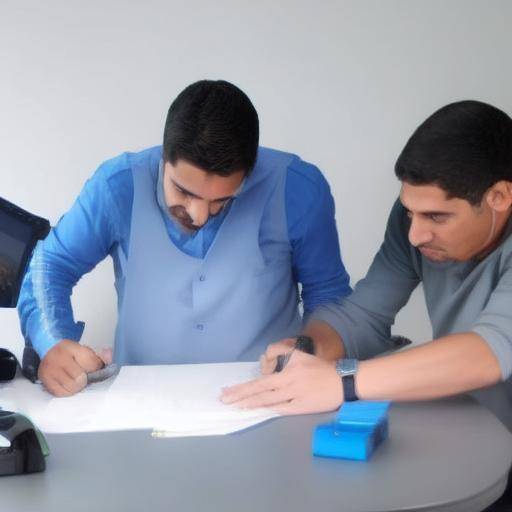
Learning workshops can offer a wide range of benefits for students, effectively addressing problem solving skills. Why are practical workshops effective to develop this crucial skill? How does the teaching of problem solving affect the academic and professional development of students? Continue reading to explore in detail the benefits and best practices associated with practical workshops in the teaching of problem resolution.
Benefits of practical workshops
Practical workshops offer a hands-on learning experience that goes beyond theory and allows students to actively apply concepts and skills in a practical environment. Some of the key benefits of workshops in the teaching of problem resolution include:
1. Promoting active participation
Practical workshops involve students actively, allowing them to experience the challenges and solutions directly in real time. This active participation promotes greater commitment to the topic and improves knowledge retention.
2. Development of practical skills
When working in practical environments, students have the opportunity to develop practical problem solving skills, from identification and analysis of problems to implementation and evaluation of solutions.
3. Application of theoretical knowledge
Practical workshops allow students to apply theoretical concepts in real scenarios, which reinforces understanding and demonstrates the practical relevance of what they have learned in the classroom.
The practical approach of the workshops can also foster critical thinking and creativity by addressing problems in an innovative way.
4. Promoting teamwork
Many workshops involve collaborative activities, which fosters teamwork, effective communication and the ability to negotiate solutions in a group environment.
5. Preparation for Real World Challenges
In confronting practical scenarios, students can develop confidence and ability to effectively address real-world challenges, providing them with a valuable advantage in their academic and professional future.
Workshops in the teaching of problem resolution: a retrospective look
The integration of practical workshops in the teaching of problem resolution has a significant history that reveals its effectiveness over time.
Origins and historical evolution
Practical workshops have their roots in the old experience-based learning practice, which has been fundamental in the formation of practical skills and problem solving throughout history. Over the centuries, various disciplines have employed workshops to teach specific skills relevant to problem solving.
Significant milestones and developments
The advent of modern education and student-centered pedagogy has led to a greater evaluation of practical workshops as an effective means of involving students and improving their ability to effectively solve problems. In addition, advances in technology and teaching methodologies have expanded the variety and effectiveness of workshops in contemporary education.
The combination of theory and practice in learning environments has been critical to developing problem solving skills and preparing students for real-world challenges.
In-depth analysis of the teaching of problem resolution through workshops
Learning workshops have proved to be an effective tool to address specific challenges associated with problem solving. By in-depth analysis of this approach, we can identify key benefits, potential challenges and current trends that influence their effectiveness.
Benefits shown in actual studies and cases
Real studies and cases have consistently demonstrated the tangible benefits of workshops in the teaching of problem resolution. The results have shown significant improvements in understanding concepts, developing practical skills and preparing for real-world situations.
Key challenges and considerations
Despite its obvious benefits, workshops also present potential challenges, such as implementation logistics, the need for appropriate resources and the effective evaluation of learning. Addressing these challenges effectively is crucial to maximizing the impact of workshops on teaching.
Current trends and developments
Current trends in problem-solving teaching through practical workshops include a growing approach to technology integration, learning customization to meet the individual needs of students and the creation of interactive and collaborative learning environments.
Comprehensive review of applications and best practices
Beyond the overall benefits, it is crucial to examine in detail the specific applications and best practices associated with workshops in problem solving teaching.
Effective applications in different educational contexts
The impact of the workshops can vary according to the educational level and the field of study. From primary education to higher education, as well as in vocational and technical training environments, workshops have proved to be applicable and effective in a variety of contexts.
Best practices supported by research
Educational research has identified a number of best practices associated with the successful implementation of workshops for the teaching of problem solving. These practices include the clarity of the objectives of the workshop, the orientation towards measurable results, the effective integration of theory and practice, and the training evaluation to inform continuous learning.
Expert recommendations and innovative approaches
Experts on pedagogy and troubleshooting have proposed innovative approaches to maximize the impact of workshops, such as the design of real-world problem-based learning scenarios, the use of simulations and the incorporation of experiential learning techniques.
Comparative analysis of benefits, practical workshops and teaching
Comparative analysis can provide a broader view of how workshops are related to other teaching approaches and the benefits associated with problem solving.
Comparison with traditional teaching methods
Compare practical workshops with traditional teaching methods highlights differences in the depth of learning, practical applicability and commitment of students. This underlines the distinctive benefits of the workshops in teaching problem-solving.
Synergies and integrated approaches
Exploring the integration of workshops with other pedagogical approaches, such as project-based learning or service learning, can reveal potential synergies and integrated approaches that maximize educational benefits.
Success cases and lessons learned
Analyzing success stories and lessons learned from both workshops and other teaching methods provides valuable information on how to optimize the effectiveness of problem-solving teaching.
CONCLUSION
In conclusion, workshops in the teaching of problem solving offer a diverse range of benefits that go far beyond traditional theoretical instruction. By fostering active participation, developing practical skills, applying theoretical knowledge, fostering teamwork and preparing for real-world challenges, these workshops offer a comprehensive learning experience that promotes the academic and professional growth of students.
With regard to future trends and predictions, it is hoped that workshops in education will continue to evolve as new technologies, customized approaches and innovative methods are integrated to address emerging educational and professional challenges. This evolution promises to provide exciting opportunities to improve the effectiveness of the teaching of problem solving through practical and collaborative approaches.
Frequently asked questions
Why are practical workshops beneficial in the teaching of problem resolution?
Workshops offer substantial benefits in promoting active participation, developing practical skills, applying theoretical knowledge, promoting teamwork and preparing for real-world challenges, which goes beyond traditional theoretical instruction.
What are the challenges associated with the implementation of workshops in teaching?
Some challenges associated with the implementation of workshops include implementation logistics, the need for adequate resources and the effective evaluation of learning.
How can the benefits of workshops be maximized in the teaching of problem resolution?
The clarity of the objectives of the workshop, the orientation towards measurable results, the effective integration of theory and practice, and the training evaluation to inform continuous learning are some of the best practices that can be used to maximize the benefits of workshops in teaching.
In what educational contexts are practical workshops applicable in the teaching of problem solving?
The workshops are applicable in a variety of educational contexts, ranging from primary education to higher education, as well as in professional and technical training environments.
How can practical workshops in teaching be customized to meet the individual needs of students?
The customization of workshops can be achieved by adapting learning scenarios to address specific challenges, including flexible learning options and addressing individual learning styles.
What are the future expectations for practical workshops in the teaching of problem resolution?
Workshops are expected to continue to evolve as new technologies, customized approaches and innovative methods are integrated to address emerging educational and professional challenges, providing exciting opportunities to improve the effectiveness of problem-solving teaching.
With the right approach and understanding of their benefits, practical workshops in the teaching of problem resolution remain an invaluable tool for developing essential skills in students and preparing them for real-world challenges.





